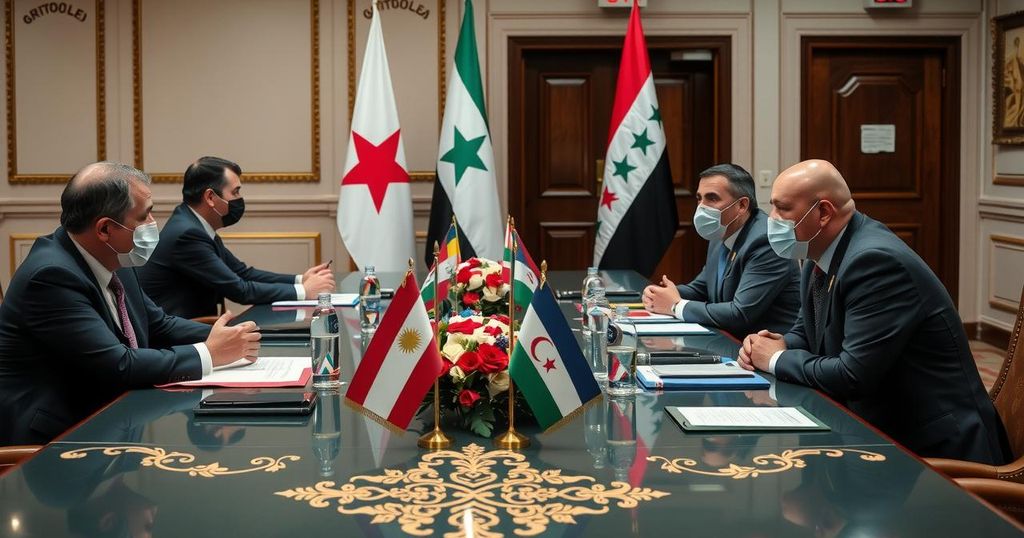Officials Support Peaceful Transition Process in Syria
Officials from the U.S., Turkey, and Arab nations convened in Jordan to endorse a peaceful transition in Syria, emphasizing the need for an inclusive government that respects minority rights. The discussions included direct contacts with the rebel group HTS, amid concerns regarding future stability. Notably absent were representatives from Syria, Iran, and Russia, who previously supported Assad’s regime. This highlights the complexities facing any political solution in Syria.
In a significant diplomatic development, officials from the United States, Turkey, and several Arab nations have pledged their support for a peaceful transition in Syria following discussions held in Jordan. Ayman Safadi, the Jordanian Foreign Minister, emphasized the region’s collective desire to prevent Syria from spiraling into chaos. U.S. Secretary of State Antony Blinken disclosed that direct communication had been established with the rebel group Hayat Tahrir al-Sham (HTS), which recently led efforts against President Bashar al-Assad’s regime.
A joint statement from the talks advocated for an inclusive Syrian government that respects minority rights and disallows the establishment of terrorist bases. The urgency for new governance reflecting the diverse interests of all Syrians has gained momentum, particularly in light of recent events. Iraqi Foreign Minister Fuad Hussein articulated the concern of regional states regarding Syria’s stability, drawing parallels with the post-Gaddafi turmoil in Libya.
Turkish Foreign Minister Hakan Fidan underscored the necessity of preserving and reforming existing Syrian institutions to safeguard against the exploitation of the transition period by terrorist factions. He urged for coordinated efforts while learning from past mistakes. While HTS has shown intentions towards inclusivity, skepticism remains regarding its commitment due to its violent history.
Despite the U.S.’s ongoing engagement with HTS regarding humanitarian concerns, particularly concerning missing personnel, there remains a significant challenge as neither Iran nor Russia—key allies of Assad— participated in the discussions. The absence of Syrian representation at the talks further complicates the potential for a unified approach. The future for Syria is dependent not only on internal cohesion but also on the support of external actors to navigate its path forward.
The Syrian conflict has persisted for over a decade, resulting in immense humanitarian crises, power struggles, and the fragmentation of the country along various lines. Amid ongoing negotiations and changing dynamics, discussions regarding a peaceful transition are crucial in moving towards a resolution that respects the diverse demographics of Syria. The engagement of global powers and regional actors reflects a shared interest in stabilizing Syria, avoiding further crises that could have wider regional implications. Recent events have highlighted the pressing need for an inclusive governance framework, capable of addressing the needs and rights of all Syrians, particularly in light of the historical context of violent extremism and sectarian divisions.
In conclusion, the commitment from the U.S., Turkey, and Arab nations to support a peaceful transition in Syria presents a potential turning point in the protracted conflict. With the focus on establishing an inclusive government and respecting minority rights, the climate for a meaningful transition may be achievable. However, uncertainties regarding the role of HTS and the absence of critical stakeholders like Iran and Russia pose significant challenges to this endeavor. Ultimately, the effectiveness of these diplomatic efforts will depend on fostering unity both within Syria and among external influences.
Original Source: www.bbc.co.uk




Post Comment